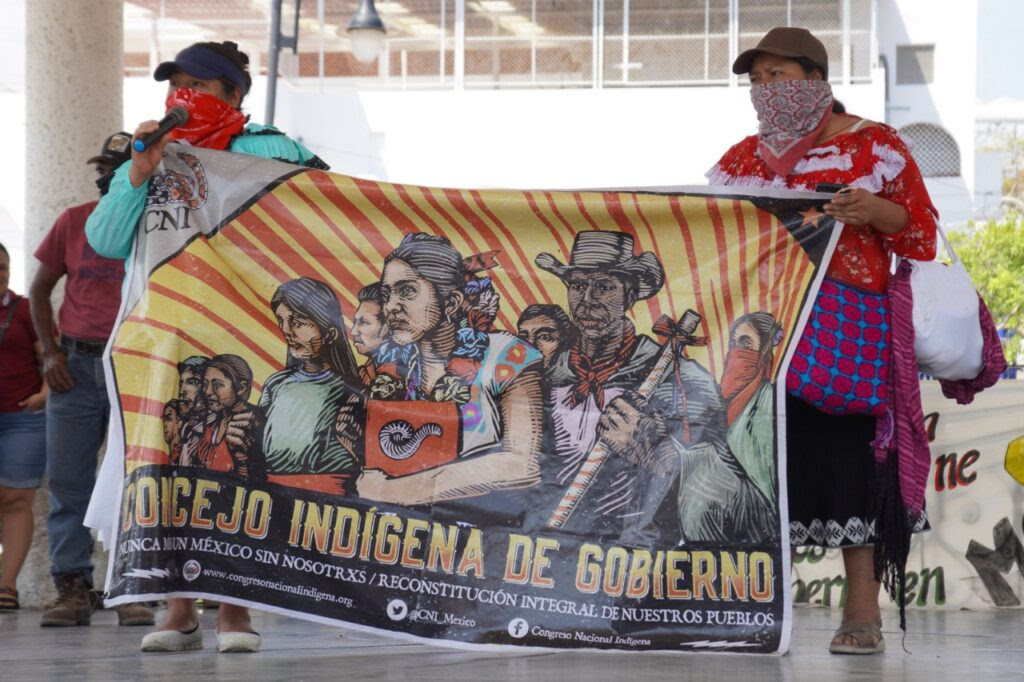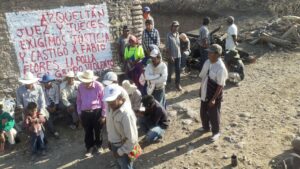By: Pie de Página
Text: Arturo Contreras Camero
Translation by Chiapas Support Committee
Indigenous peoples from the territories affected by the megaprojects of the López Obrador government will tour the points of greatest conflict throughout six southeast Mexican states. Their objective is to unite their struggles and present a common front.
PIJIJIAPAN, CHIAPAS – Different organizations of indigenous peoples from the country’s south began a caravan to meet in the territories they defend and to unite their processes of struggle and resistance. Their main enemy is the development projects initiated by the government of Andrés Manuel López Obrador, four years ago. Most of these organizations are part of the National Indigenous Congress, which tried to bring the candidacy for the presidency of the Republic to María De Jesús Patricio, Marichuy, in 2018.
These organizations believe that the development of projects such as the Maya Train, the Interoceanic Corridor and the Olmec refinery, built in Dos Bocas, Tabasco, threaten their own development as peoples and subjects them to the designs of big capital.
They charge that the effects of constructing these works mean dispossession in their territory and submission to a capitalist structure to which, to a certain extent, they were alien. During their journey, these communities will share their experiences with other peoples. They will also seek solidarity and the creation of a common front. They defend “the right to a dignified life of peoples and nature.”
The tour
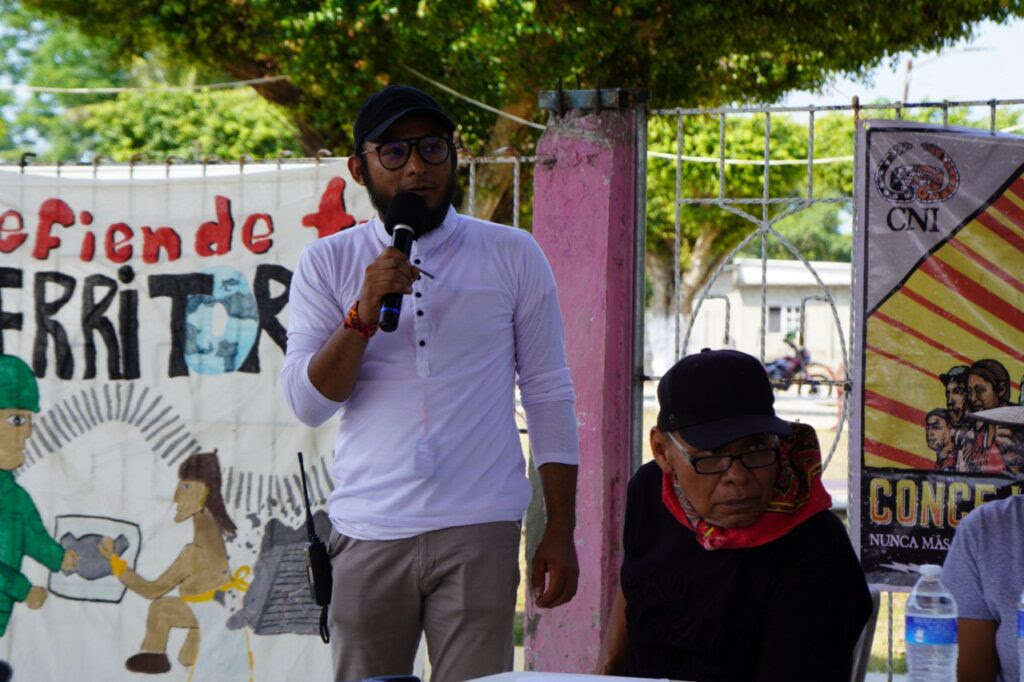
The route of the caravan will leave Chiapas, then approach the Isthmus of Tehuantepec and follow the route of the Interoceanic Corridor, a train that will link the Atlantic and Pacific trade routes. From there it will go to Veracruz, the other route of this commercial channel. Then the caravan will continue its journey to Villahermosa, Tabasco.
In Tabasco, it will visit the community of El Bosque, in the municipality of Centla, which a year ago began to disappear due to rising sea levels. A sample of the effects of an economy dependent on the extraction and burning of hydrocarbons.
From there, the caravan will move to the Yucatan Peninsula to travel the line of Trén Maya | Maya Train. On the tour, five of the key points of the train line will be visited. First in Candelaria, Campeche; then to Valladolid in Yucatan, to Carrillo Puerto, Quintana Roo; Xpujil, Campeche to finally reach Palenque, Chiapas.
The tour will end in San Cristóbal de las Casas, where members of the tour will hold an international meeting with representatives of other indigenous communities in Mexico and the continent.
An opportunity to meet
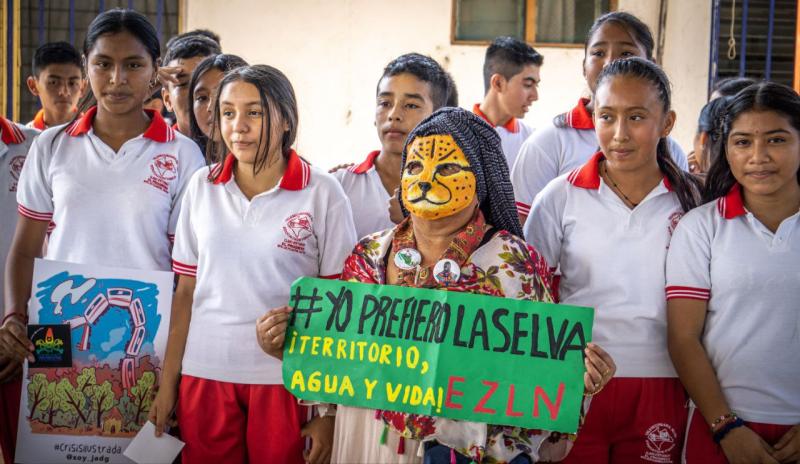
Ángel Sulub lives in Carrillo Puerto, Quintana Roo. He also belongs to one of the organizations that convoke the Caravan. He explains:
“The Caravan is an excellent opportunity for the peoples to articulate and meet about our struggles. Those of us who inhabit these lands are going through the same situation of dispossession caused by the megaprojects that are being imposed in an illegal way, which constitute violations of rights, not only to prior and informed consultation, but to health and life itself.”
The processes of consultation about these projects, he recalls, were plagued by unclear assemblies and were even rigged by local powers to achieve their acceptance. In many cases, there were reports of a lack of information and the use of political and partisan groupings that swept away those who opposed them. President López Obrador’s popularity helped his acceptance and silence voices against it.
The states in which these projects are being developed are among those that expressed the most support for the López Obrador government. Although in some of the places where these projects will be developed there are groups that resist them, most of those who live in these states look favorably on them, because they represent an employment option in these places.
“For us it’s important to see that there are different life options to this developmentalist model that is imposed on us and presented to us as the only way to achieve what is called development or progress and that does not necessarily have to do with the good of the peoples,” Angel Sulub adds in an interview.
“We think that the caravan can show that there are struggles and resistances, other forms of dignified life, of thinking, of feeling and of relating to the territory that are contrary to the forms of the capitalist system that is governed by two elements: competitiveness and individuality.”
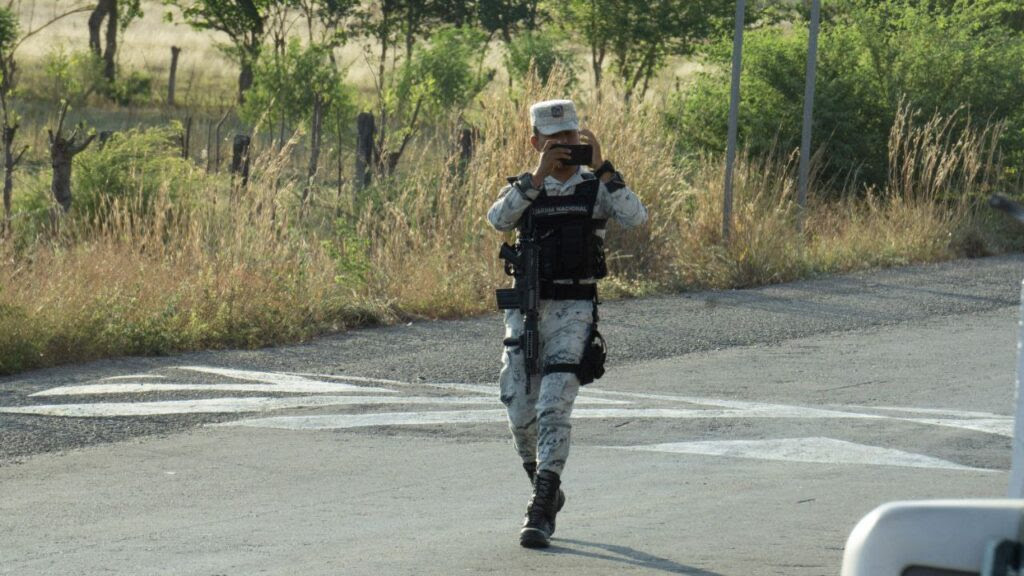
Below we share the itinerary of the El Sur Resiste! caravan:
April
25 Pijijiapan – Tonalá, Chiapas
26 Puente Madera, Oaxaca
27 Guichicovi, Oaxaca
28 Oteapan, Veracruz
29 Villahermosa-El Bosque,Tabasco
30 Candelaria, Campeche
May
1 Valladolid, Yucatán
2 Carrillo Puerto, Quintana Roo
3 Xpujil, Campeche
4 Palenque, Chiapas.
5 Arrival in San Cristóbal de las Casas, Chiapas
Originally Published in Spanish by Chiapas Paralelo, Tuesday, April 25, 2023, and Re-Published with English interpretation by the Chiapas Support Committee

